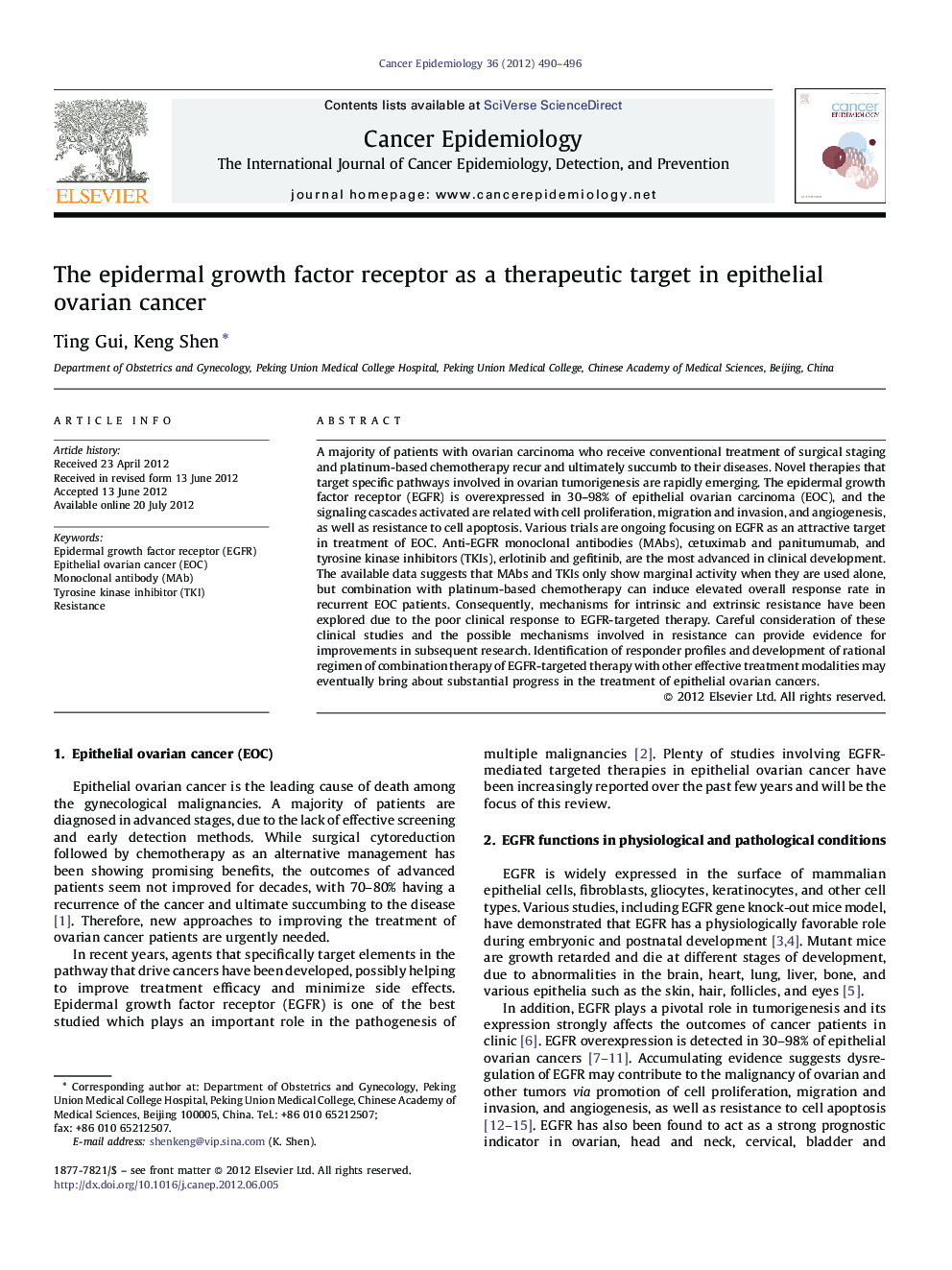| Article ID | Journal | Published Year | Pages | File Type |
|---|---|---|---|---|
| 2109056 | Cancer Epidemiology | 2012 | 7 Pages |
A majority of patients with ovarian carcinoma who receive conventional treatment of surgical staging and platinum-based chemotherapy recur and ultimately succumb to their diseases. Novel therapies that target specific pathways involved in ovarian tumorigenesis are rapidly emerging. The epidermal growth factor receptor (EGFR) is overexpressed in 30–98% of epithelial ovarian carcinoma (EOC), and the signaling cascades activated are related with cell proliferation, migration and invasion, and angiogenesis, as well as resistance to cell apoptosis. Various trials are ongoing focusing on EGFR as an attractive target in treatment of EOC. Anti-EGFR monoclonal antibodies (MAbs), cetuximab and panitumumab, and tyrosine kinase inhibitors (TKIs), erlotinib and gefitinib, are the most advanced in clinical development. The available data suggests that MAbs and TKIs only show marginal activity when they are used alone, but combination with platinum-based chemotherapy can induce elevated overall response rate in recurrent EOC patients. Consequently, mechanisms for intrinsic and extrinsic resistance have been explored due to the poor clinical response to EGFR-targeted therapy. Careful consideration of these clinical studies and the possible mechanisms involved in resistance can provide evidence for improvements in subsequent research. Identification of responder profiles and development of rational regimen of combination therapy of EGFR-targeted therapy with other effective treatment modalities may eventually bring about substantial progress in the treatment of epithelial ovarian cancers.
